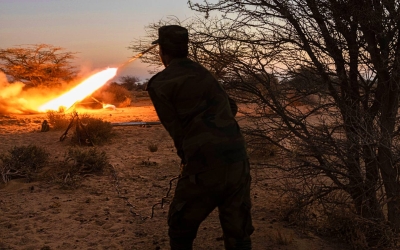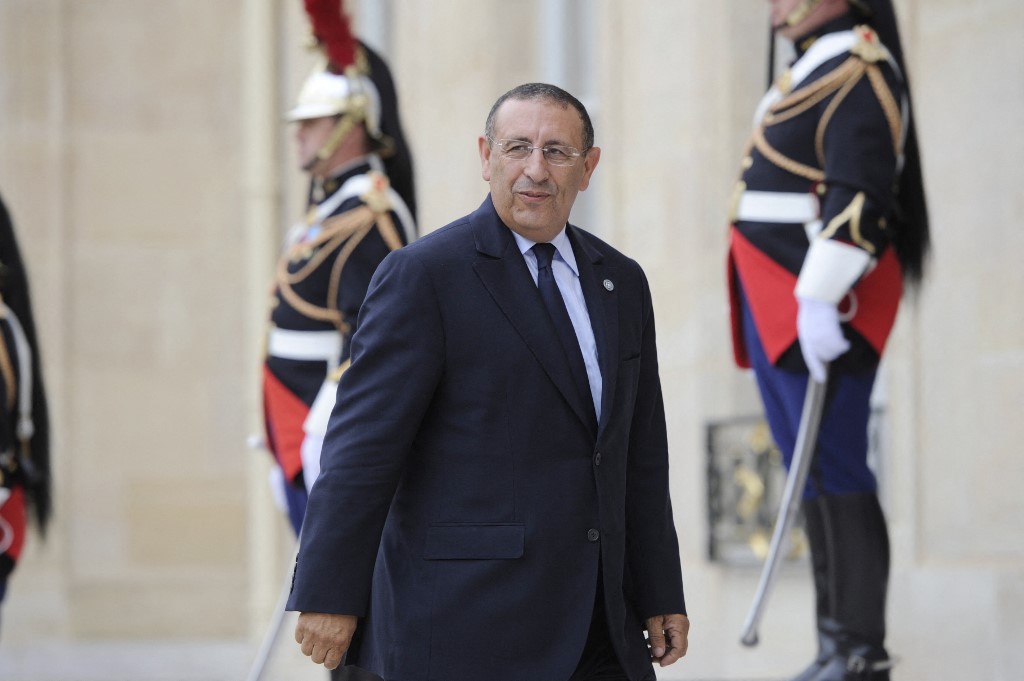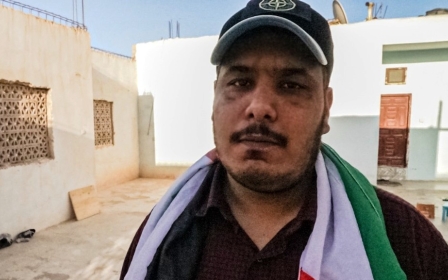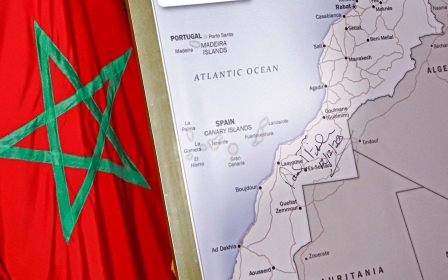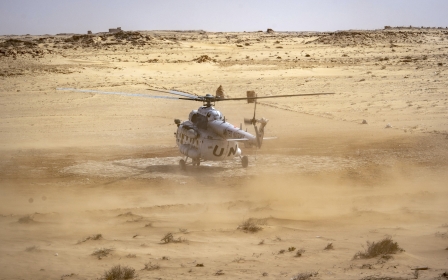Western Sahara the 'priority' for Morocco's new EU ambassador
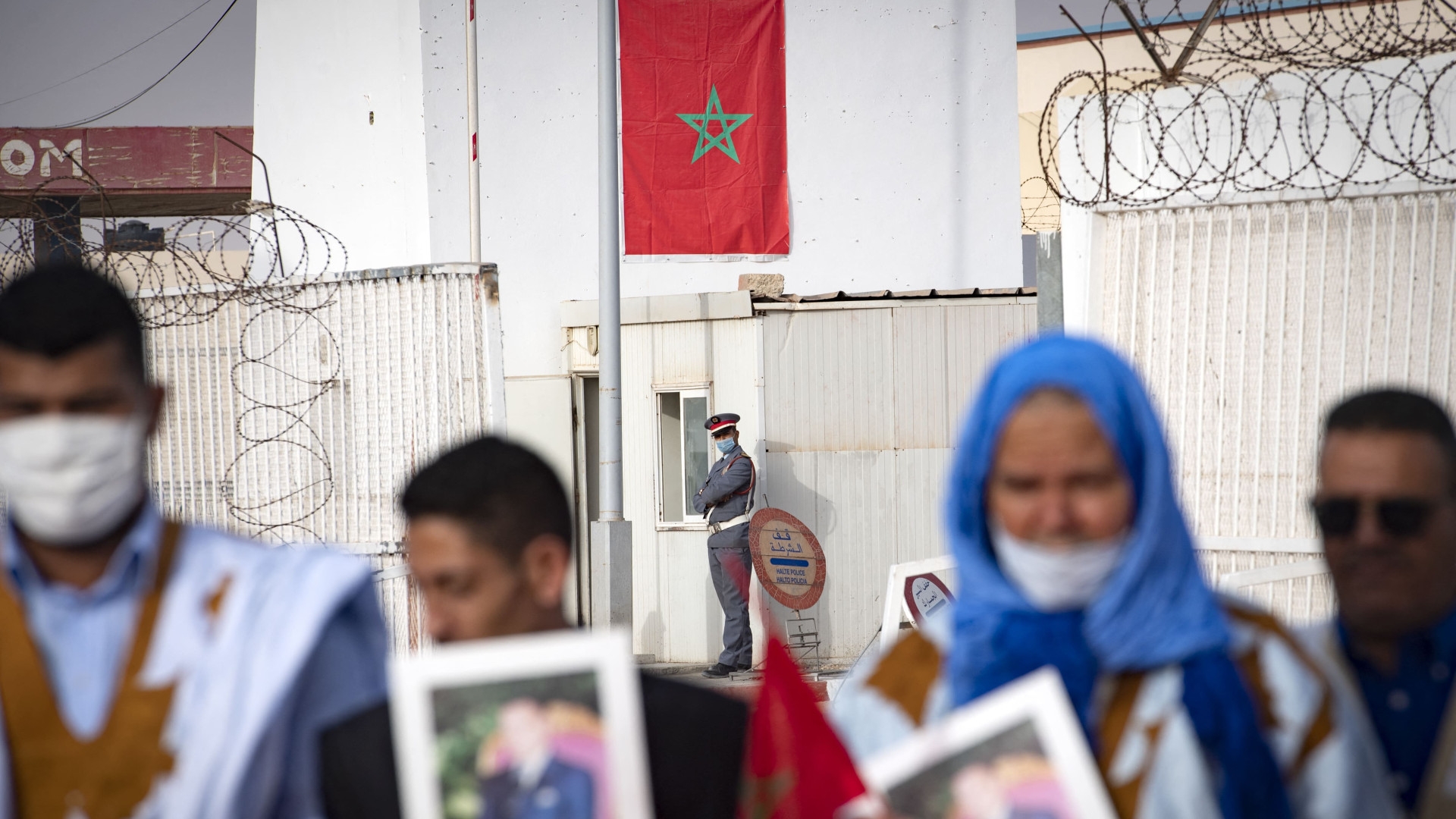
Since the United States recognised the sovereignty of Morocco over Western Sahara in exchange for the normalisation of relations with Israel, the kingdom has led a diplomatic offensive on all fronts to encourage other powers to follow suit. Particularly their main European partners.
Appointed as Morocco’s representative to the European Union in October, Youssef Amrani is one of the faces embodying this strategy. With more than 30 years' experience across different posts within the Ministry of Foreign Affairs, the diplomat is considered a specialist in one of the most sensitive matters in North Africa: Western Sahara.
The issue of the former Spanish colony, classified as a "non-self-governing territory" by the UN, is the source of a decades-long conflict between Morocco and the Sahrawi independence movement, the Polisario Front. Supported by Algeria, Polisario in August 2021 broke off diplomatic relations with Rabat.
New MEE newsletter: Jerusalem Dispatch
Sign up to get the latest insights and analysis on Israel-Palestine, alongside Turkey Unpacked and other MEE newsletters
Recruited in 1978 as a civil servant at the Ministry of Foreign Affairs, Amrani has risen the ranks of Moroccan diplomacy: consul, ambassador, secretary-general of the ministry, delegate-minister for the same department, and chargé de mission of the Royal Cabinet - with a specific focus on Western Sahara.
His profile is unusual compared to his predecessors.
Ahmed Rahhou, for example, was the head of a bank and had no experience in diplomacy whatsoever before presiding over this strategic embassy between 2019 and 2021.
Rahhou's predecessor, Ahmed Reda Chami, the former director-general of Microsoft in North and West Africa and the former industry minister, also had no experience in the world of diplomacy before taking the helm in 2016.
The specific choice of Amrani was dictated, a source within Moroccan diplomacy told Middle East Eye, "by existing tensions with certain European countries over the Saharan issue and by the need to properly defend its associated interests with Brussels".
'Diplomacy in hostile areas'
The choice of Amrani was also dictated by context.
A diplomatic rift with Spain, caused by the April 2021 hospitalisation of Brahim Ghali, the head of the Polisario Front, with Covid-related complications, triggered Morocco’s recall of its ambassador in Madrid and the severing of all diplomatic ties with its foremost commercial partner in Europe.
Since then, the kingdom has been making moves to persuade its European neighbour to adopt a more openly favourable position to the autonomy plan it is proposing for the settlement of the conflict.
In March 2021, Morocco also suspended all diplomatic relations with Germany, reproaching it for "antagonistic activism" the day after the US recognised the sovereignty of Morocco over Western Sahara.
Berlin had requested a closed meeting of the UN Security Council to discuss former President Donald Trump’s decision.
“The priority of Amrani, who is fully cognisant of this issue, will be to help gain the acceptance of Morocco’s sovereignty over the Sahara by European countries," the diplomatic source told MEE, "knowing that he has already gained experience in more hostile situations."
The diplomat was ambassador in Colombia, Ecuador and Panama - residing in Bogota from 1996 to 1999, then in Chile until 2001 - before being sent to Mexico, Guatemala, Salvador, Honduras, Costa Rica, Nicaragua and Belize. All were - and some still are - hostile to Morocco's autonomy initiative.
Before his appointment as ambassador to the EU, Amrani was placed in South Africa, a country with which Morocco severed all diplomatic relations in 2004 following its recognition of the Sahrawi Arab Democratic Republic (SADR).
“His 2018 posting to Pretoria took place a few months before South Africa took up its two-year mandate on the UN Security Council. He then had the challenge of winning South African individuals and institutions over to the autonomy plan," a former diplomat told MEE.
"This was difficult given Pretoria’s stance but he succeeded in defending the Moroccan position through publications and interventions in the South African media."
No trade partnership without Western Sahara
A former politician of Istiqlal, a nationalist party for which Moroccan sovereignty in the Sahara has been a pursuit since the country’s independence, the ambassador now has the task of enforcing a new doctrine: no trade deals without the inclusion of the territory of Western Sahara.
This priority was established by King Mohammed VI on 6 November on the occasion of the 46th anniversary of the Green March, the great march to the then Spanish-occupied Sahara, launched by King Hassan II with the aim of recovering the territory.
'Youssef Amrani is tasked with strengthening relations between Morocco and Europe, without ceding an inch on the Western Sahara issue'
- Former diplomat
“To those who display vague or ambivalent positions, we declare that Morocco will not engage with them in any economic or commercial approach that would exclude the Moroccan Sahara,” he said.
It was a thinly veiled warning to the European Union. The EU Court of Justice had just cancelled two trade deals - for agricultural and fishing products from Western Sahara - between the bloc and Morocco.
The cancellation, announced on 29 September, followed an appeal brought by the Polisario Front. This setback continues to rankle in Rabat, even though the EU appealed against the ruling on 19 November for the reinstatement of the trade deals.
“There is a clear shift in [Moroccan] policy," said the former diplomat. "While Ahmed Rahhou essentially had economic priorities, such as getting Morocco off the grey list of tax havens, or immigration or climate change, Youssef Amrani is tasked with strengthening relations between Morocco and Europe, without ceding an inch on the Western Sahara issue.”
Middle East Eye delivers independent and unrivalled coverage and analysis of the Middle East, North Africa and beyond. To learn more about republishing this content and the associated fees, please fill out this form. More about MEE can be found here.


